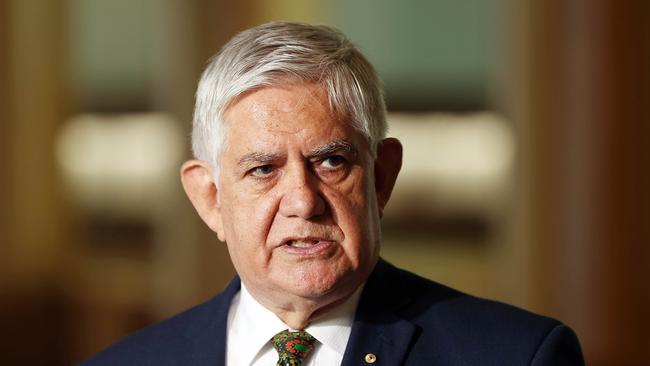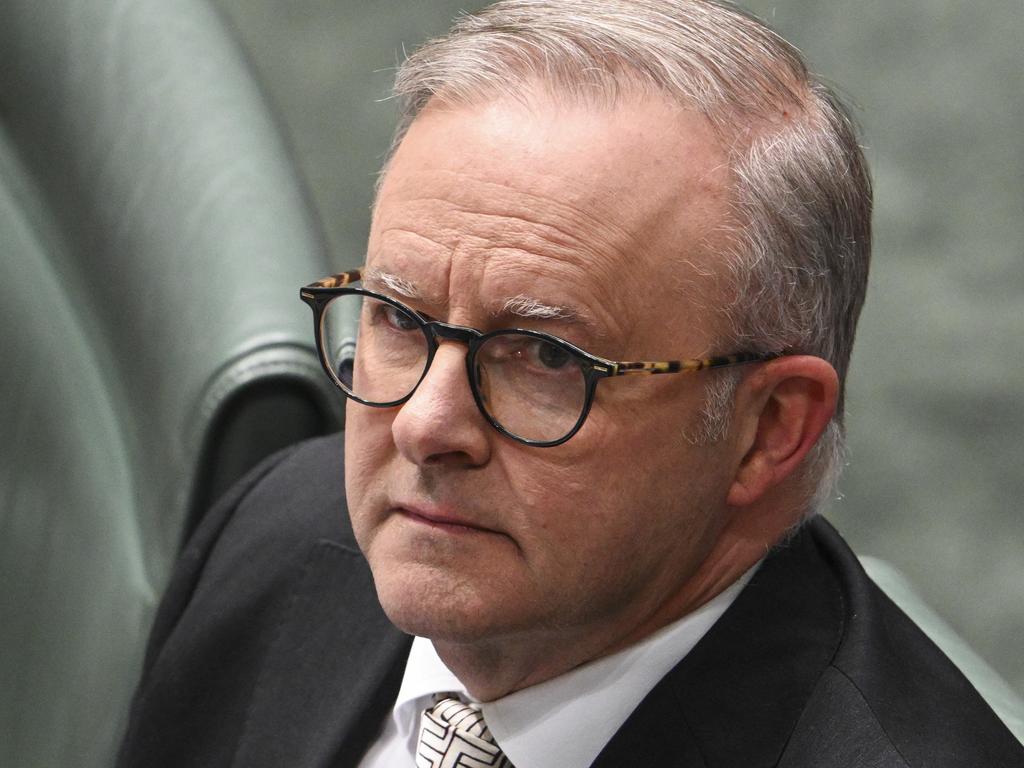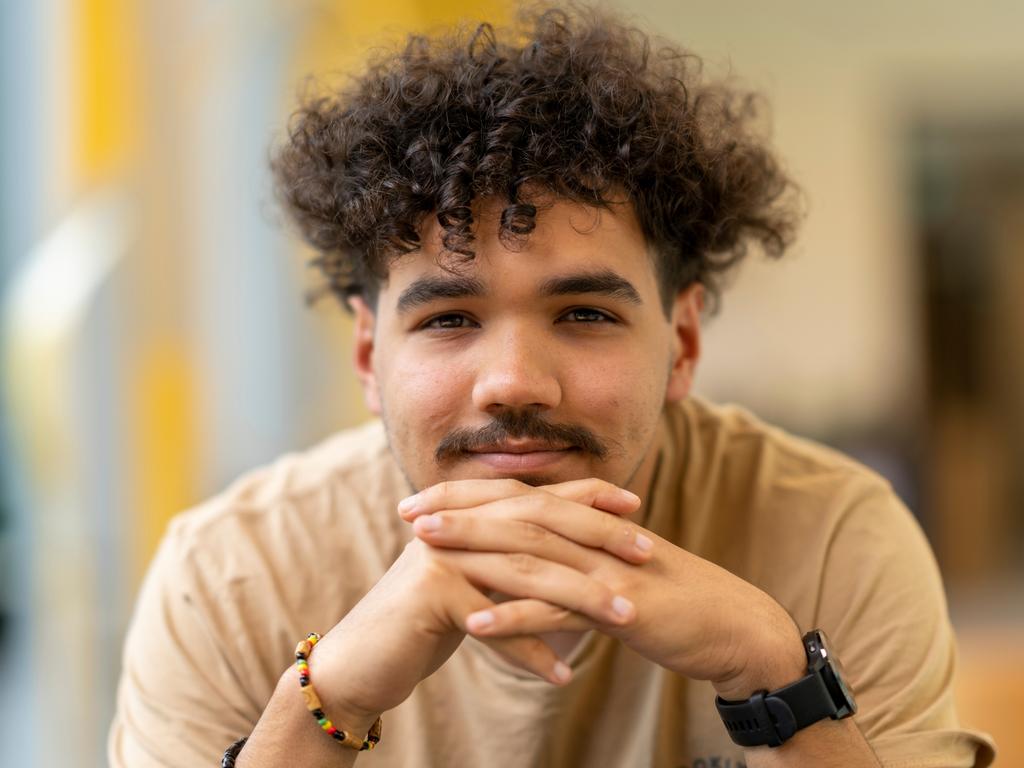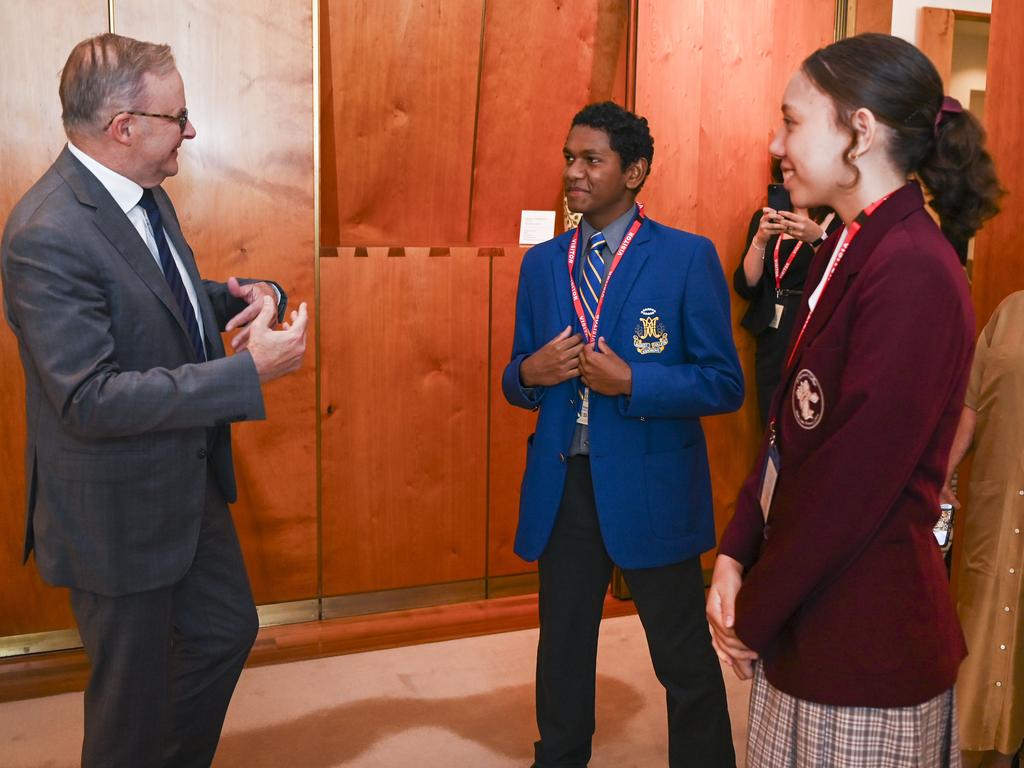Drop Makarrata Commission to avoid further antagonism, says Ken Wyatt
Ken Wyatt has warned Labor against pursuing a Makarrata Commission out of concern it will further ‘antagonise’ Australians and stoke division, following the failure of the voice referendum.

Former Indigenous Australians minister Ken Wyatt has warned Labor against pursuing a Makarrata Commission to oversee truth telling because this would further “antagonise” Australians and stoke division, following the failure of the voice referendum.
The first federal Aboriginal cabinet minister said embedding truth telling in school curriculums – as Indigenous Australians Minister Linda Burney suggested on Wednesday – would not work in isolation as a means of helping all citizens understand the nation’s history before and since settlement.
“School curriculums alone will not do it,” Mr Wyatt said.
“I wouldn’t go with a Makarrata Commission, not based on the African model. Because in the face of the No vote you don’t want to antagonise. I think the Prime Minister has lost a lot of kudos and ground on the voice failing. His leadership has to have a question mark over it.”
Mr Wyatt has been a long supporter of the 2017 Uluru Statement from the Heart’s call for an Indigenous voice enshrined in the Constitution – followed by treaty and truth telling. He quit the Liberal Party over its position on the referendum.
Ms Burney said on Wednesday she was still talking with communities about the outcomes of the referendum and “what the next steps would be”, but would not put a timeline on truth telling and what that could look like.
“I’m having discussions with the cabinet about that … the issue of truth telling is incredibly important,” she told the ABC.
“There are many, many ways in which that can happen including the school curriculum.
“There’s not a particular model that I’m favouring at the moment … I am very open, as the government is very open, to what it might look like.”
The Australian understands there are no discussions between federal and state governments on implementing truth-telling into curriculums, with the national curriculum not due to be reviewed until 2026-27.
The Australian Curriculum, Assessment and Reporting Authority said Aboriginal and Torres Strait Islander histories and cultures were already key priorities in the curriculum.
“The Australian curriculum version 9.0 includes a range of additional content that recognises the experiences and perspectives of Aboriginal and Torres Strait Islander peoples,” a spokesman said. “The Aboriginal and Torres Strait Islander histories and cultures cross-curriculum priority aims to deepen all students’ understanding of the histories and cultures of First Nations Australians and their knowledge of important aspects of our national history.”
Australian Institute for Teaching and School Leadership acting chief executive Edmund Misson pointed to professional standards that required teachers to demonstrate how they promoted reconciliation between Indigenous and non-Indigenous Australians in the classroom.
Australian Primary Principals’ Association president Angela Falkenberg said enormous strides had been taken in the curriculum over years to embed Indigenous history and culture into teaching and argued truth-telling efforts should be focused on adults.
Kevin Donnelly, who reviewed the curriculum under the Abbott government, said he believed the pendulum had swung too far away from teaching children about Western history and values, detracting from their “national pride” as part of a left-leaning agenda.
Opposition education spokeswoman Sarah Henderson echoed Dr Donnelly’s comments, saying: “Classrooms should remain a place for education, not a forum to foster division and activism.”
While Mr Wyatt was a supporter of a constitutionally enshrined voice, as minister he toed the Morrison government’s line and did not pursue the measure. Instead he oversaw work on a legislated voice, resisted calls for a truth commissioner and believed in “organic and evolving truth telling” rather than formal hearings such as take place in the truth and reconciliation commission in South Africa.
Mr Wyatt said Labor should commission a series of documentaries through the ABC on Indigenous history and repurpose the Australian Institute of Aboriginal and Torres Strait Islander Studies for a couple of years to develop “historical monologues”. He believed the arts, the media, schools and universities all had a role in helping Australians learn the stories of where they live.
“We did a fair bit of work on (truth-telling),” he said. “What I was in the process of bringing together is all of the national bodies that hold records of Indigenous Australians, seeing what they had in their collections including the film archives. I was looking at some of the work out of the frontier wars by Rachel Perkins. And then I was looking at how do we translate that into … not a catalogue, but an understanding of what history we have.”
Mr Wyatt said all of the work he had progressed for truth telling would be available to Ms Burney.
“The National Indigenous Australians Agency would have all of that and I’m surprised they haven’t come forward and said ‘Minister (Burney) the previous minister had us working on this stuff’,” he said.
Voice campaigner Sean Gordon said truth telling could not occur effectively without a regional and local voice model first being set up.
The Greens and independent Indigenous senator Lidia Thorpe called on the government not to walk away from Makarrata, treaty and truth telling.
However key architects of the Uluru Statement from the Heart did not pushed for national truth-telling hearings during the voice campaign last year.
Instead, Uluru Dialogue co-chair Megan Davis warned against “performative story-telling” led by government.
Professor Davis advocated for local truth telling projects such as the Carrolup Elders Reference Group and its Centre for Truth-telling.







To join the conversation, please log in. Don't have an account? Register
Join the conversation, you are commenting as Logout